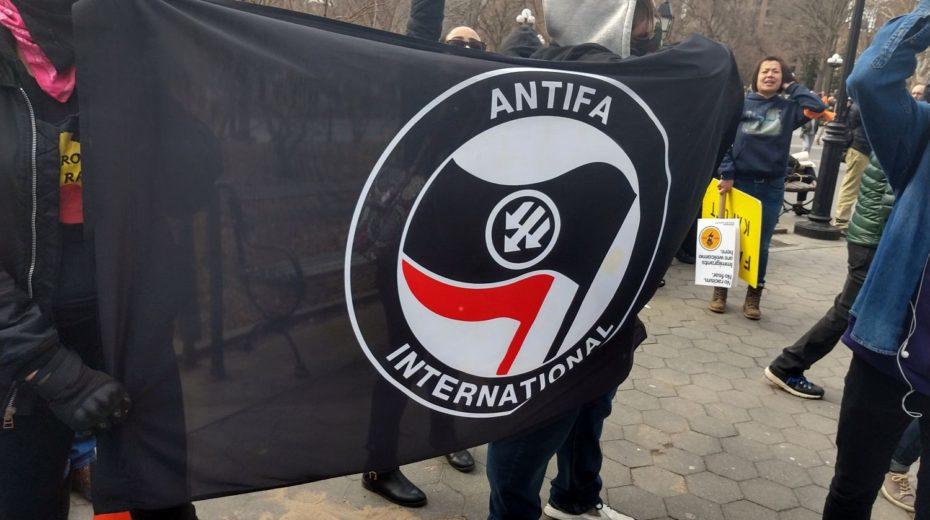“I want to be elected. I think I am a great president. I think I am the greatest president there ever was, and if I am not elected, the national interest will suffer greatly.” These are the words of a hypothetical president, as imagined by Alan Dershowitz in his role as one of Donald Trump’s lawyers during the final days of the Senate impeachment trial.
That hypothetical president, said Dershowitz, would not have committed an impeachable offense if he offered an otherwise-legal quid pro quo partially motivated by a desire to improve his own electoral chances. After all, “every public official that I know believes that his election is in the public interest.”
Despite Dershowitz’s Harvard credentials and long standing as a liberal stalwart, this thought experiment was greeted with a storm of disdain on the Hill and within the legal community.
“His argument was beyond absurd. I thought he made absolutely no sense—because he essentially said that if President Trump believes his election is for the good of the American people that he could do whatever he wants,” Sen. Kirsten Gillibrand (D–N.Y.) told The Washington Post. “He is wrong, and I think he’s made a laughable argument that undermines the president’s case.”
Senate Minority Leader Chuck Schumer (D–N.Y.) echoed the sentiment: “The Dershowitz argument frankly would unleash a monster, more aptly it would unleash a monarch.”
“Our country was founded on this idea that we were an independent democracy, that we didn’t want to be ruled by a king,” Sen. Amy Klobuchar (D–Minn.) chorused. “And if you say things like that—like you can do anything you want and it doesn’t matter—just to further your election, you basically have a dictator. You have a king. You have no democracy.”
Yet the same Democrats who descended into dread at Dershowitz’s thought experiment about the relationship between executive power and national interest seem disconcertingly lacking in self-awareness about how such a critique would apply to their own plans for the day their party once again holds the reins.
Klobuchar herself has promised to use executive action in her first 100 days to enact new policies on gun control, financial regulation, immigration, union protections, cybersecurity, and much more. She has made these promises, one assumes, out of mixed motivations: She believes such actions would be in the national interest, but she also thinks that promising to do these things will increase her chances of being elected and that doing them will increase her chances of being re-elected.
Staffers for Sen. Bernie Sanders (I–Vt.) have already begun drafting the dozens of executive orders that would be required to fulfill the promises he has been making for the debut of his presidency, from directing the Justice Department to legalize marijuana to declaring a climate change emergency to banning the export of crude oil to canceling all federal contracts that pay workers less than $15 per hour.
Indeed, every one of the would-be contenders for the presidency has promised to use his early days in office to single-handedly promulgate major policy changes using powers reserved to the executive.
Topping them all is Michael Bloomberg, who has enjoyed a surprisingly fast ascent in the polls after a late entrance into the Democratic primaries. The billionaire mayor rammed through a change in New York City’s term limits to clear the way for his third term in Gracie Mansion, citing the necessity of strong leadership during the financial crisis. “We may well be on the verge of a meltdown, and it’s up to us to rise to the occasion,” he said at a 2008 news conference. New Yorkers, finally given the chance to vote on the matter, restored term limits shortly after his re-election. Bloomberg, too, has dozens of executive orders up his sleeve for the day he assumes office.
Presidents will naturally have a complicated and expansive understanding of the national interest. And because presidents are human, that understanding will—as a general matter—dovetail neatly with their own partisan and personal political interests.
Running for high office (at least in the 21st century, but perhaps everywhere and always) requires a set of unusual traits, one of which is a reduced or nonexistent sense of humility. Most neurotypical human beings faced with the demands of a presidential campaign would quickly conclude either that it’s more trouble than it’s worth or that someone else could do the job better. But a successful contender for the presidency must believe, deep in his secret heart, that he alone can best serve the national interest.
Upon attaining office, a president does indeed assume tremendous power in the domestic sphere and the right to exercise massive amounts of discretion in foreign policy. He also immediately becomes a scapegoat and sin eater.
Nowhere is this more apparent than on economic questions. Political soothsayers have compellingly made the case that a strong economy is one of the best predictors for the re-election of a sitting president. And as Veronique de Rugy explains in “Just How Good Is Trump’s Economy, Anyway?” (page 29), a president does have influence over some aspects of the market. But he is hardly the kind of god-king that most Americans imagine him to be, empowered to make the NASDAQ and the S&P 500 rise and fall with a wave of his hand. Presidents do their best and then hang on for the ride, taking credit in the good times and passing blame in the bad times. Still, when the economy is doing well, one can easily imagine a president convincing himself (and the electorate) that it’s in everyone’s interest to keep him in power if they want the good times to keep rolling. Of course, if the economy is floundering, the same president is likely to make the case that only a steady hand on the tiller can right the ship and so he must retain power if there is to be any hope of recovery. Motivated reasoning can be awfully flexible.
This is hardly a new phenomenon, as historian Amity Shlaes explains in her interview with Nick Gillespie (page 48). The Great Society was both an idealistic vision of a new way to conceive of the national interest and a brutal electoral calculation by President Lyndon Johnson about how to establish his legacy at a highly unstable political moment. “When Johnson became president, he wanted to do something that would make him look great—greater than President [John F.] Kennedy, who preceded him and died tragically,” she explains.
It’s been manifesto season on the right, as conservatism’s big brains struggle to come to terms with what Donald Trump hath wrought and figure out a way forward. The result has been the movement described by Stephanie Slade in “Against the New Nationalism” (page 22). This new breed of nationalists complains that libertarians have too much influence, fetishizing individual autonomy and global economic growth to the point that our polity is on the brink of ruin. They insist that Americans must put our economic, cultural, and political interests above those of the rest of the world in order to preserve something vitally important and unique. In many ways, the nationalist resurgence is an attempt by conservative intellectuals to retcon the Trump presidency as part of a larger evolution of the national interest.
But right now the ratio of nationalist manifestos to nationalists is approximately 1:1—tough conditions to get a new movement off the ground. Some of the new nationalists see an aggressive foreign policy stance as central to the national interest, while others favor a systematic withdrawal to a stronger defensive position. Some are untroubled by relatively free trade, while most see that as the root of many evils. Some want harsher immigration restrictionism; others prefer to incentivize native births. And on and on.
This inability to agree on the nature of the national interest is endemic not just to the new nationalism, but to all of politics. Occasionally entire nations do manage a kind of convergence on this question. But that typically happens when they’re physically under attack by a foreign invader. (The same theory might work globally if an enormous and deadly alien squid fell from the sky, as Alan Moore imagines in Watchmen and as Paul Krugman has considered in his columns.)
But the U.S. faces no such threat, no matter how many real and metaphorical wars we are currently engaged in. As the spectacle of the impeachment demonstrated, far from rejoicing in a single conception of who we are and where we should be heading, the political classes and the electorate are bitterly divided about the nature of the national interest and the best person to wield the powers of the presidency to pursue it.
from Latest – Reason.com https://ift.tt/3alqp3X
via IFTTT


